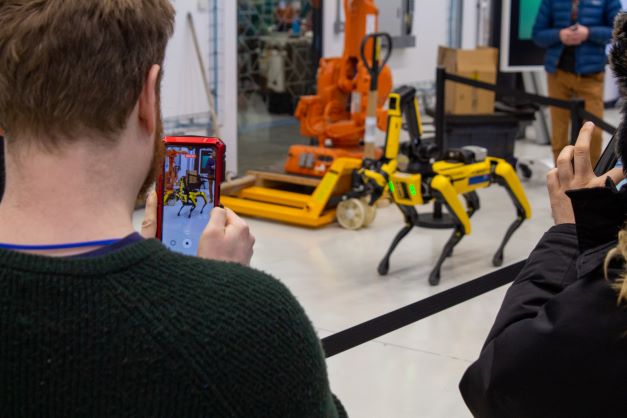Tech
Scotland eyes global start-ups through Heriot-Watt University DeepTech LaunchPad

Six entrepreneurs will have access to experts, facilities and equipment within Heriot-Watt University and the National Robotarium
Scottish entrepreneurs will be given access to ground-breaking discoveries and innovations that have the potential to reshape entire industries thanks to a pilot programme being launched at Heriot-Watt University in Edinburgh which is supported by the Barclays Eagle Labs Ecosystem Partnership Programme, funded by the Department for Science, Innovation and Technology.
Deep technology or “deeptech” harnesses major scientific discoveries or engineering innovations and has the potential to revolutionise whole economic sectors rather than leading to incremental advances in individual products, processes, and services.
Under the six-month pilot scheme, the DeepTech LaunchPad will give six entrepreneurs from across Scotland access to experts, facilities and equipment within Heriot-Watt University and the National Robotarium, the world-leading centre for robotics and artificial intelligence based at Heriot-Watt’s Edinburgh campus.
“Deep-tech isn’t about organic improvement – it’s about harnessing the latest scientific research and engineering breakthroughs to create companies that will disrupt their industries and grow to a global scale.”
Entrepreneurs will also receive training and support from the university’s commercialisation team, helping them to become investment-ready with proven prototype products, industry partners and a viable route to market.
If the pilot scheme is a success then DeepTech LaunchPads have the potential to be rolled out across other Scottish universities.
Grant Wheeler, Head of Commercialisation at Heriot-Watt University, said:
“Having a deep-tech accelerator is one of the missing pieces in Scotland’s entrepreneurial ecosystem and will allow our nation to create companies that can compete on an international scale.
“Deep-tech isn’t about organic improvement – it’s about harnessing the latest scientific research and engineering breakthroughs to create companies that will disrupt their industries and grow to a global scale.
“Our DeepTech LaunchPad pilot will give entrepreneurs from outside the university access to the same scientific discoveries and engineering innovations as the students and academics who want to launch spin-out companies, levelling the playing field.
“We expect that the businesses that will be created will go on to attract support from other parts of Scotland’s entrepreneurial ecosystem, such as Codebase’s Techscaler programme and Scottish Enterprise’s programmes for high-growth businesses.”
Matthew Corbidge, Director, Barclays Eagle Labs, added:
“Heriot-Watt University’s DeepTech LaunchPad is exactly the type of game-changing initiative that we want to support through our Ecosystem Partnership Programme.
“Using our Ecosystem Partnership Programme, we’re allocating funding to organisations such as Heriot-Watt that are already plugged into their national and regional ecosystems.
“This isn’t about reinventing the wheel or setting up competing schemes – instead, this is about spotting gaps in the ecosystem and helping existing players to fill that need.
“Deep-tech is one of the most-promising opportunities within both the Scottish and wider UK economies and accessing deep-tech at the National Robotarium will help to create companies of a truly global scale.”
The six entrepreneurs chosen to take part in the DeepTech LaunchPad’s pilot phase will each receive a £15,000 innovation voucher, which they can spend on access to facilities and expertise at Heriot-Watt.
If their companies go on to successfully raise funding or hit operating profit targets then they will repay the £15,000.
The National Robotarium is part of the £1.3 billion 15-year investment programme jointly funded by the Department for Science, Innovation and Technology, the Scottish Government, and regional partners. Its pioneering £22.4 million facility acts as an innovation hub for the practical application of robotics and autonomous systems in industry and society




